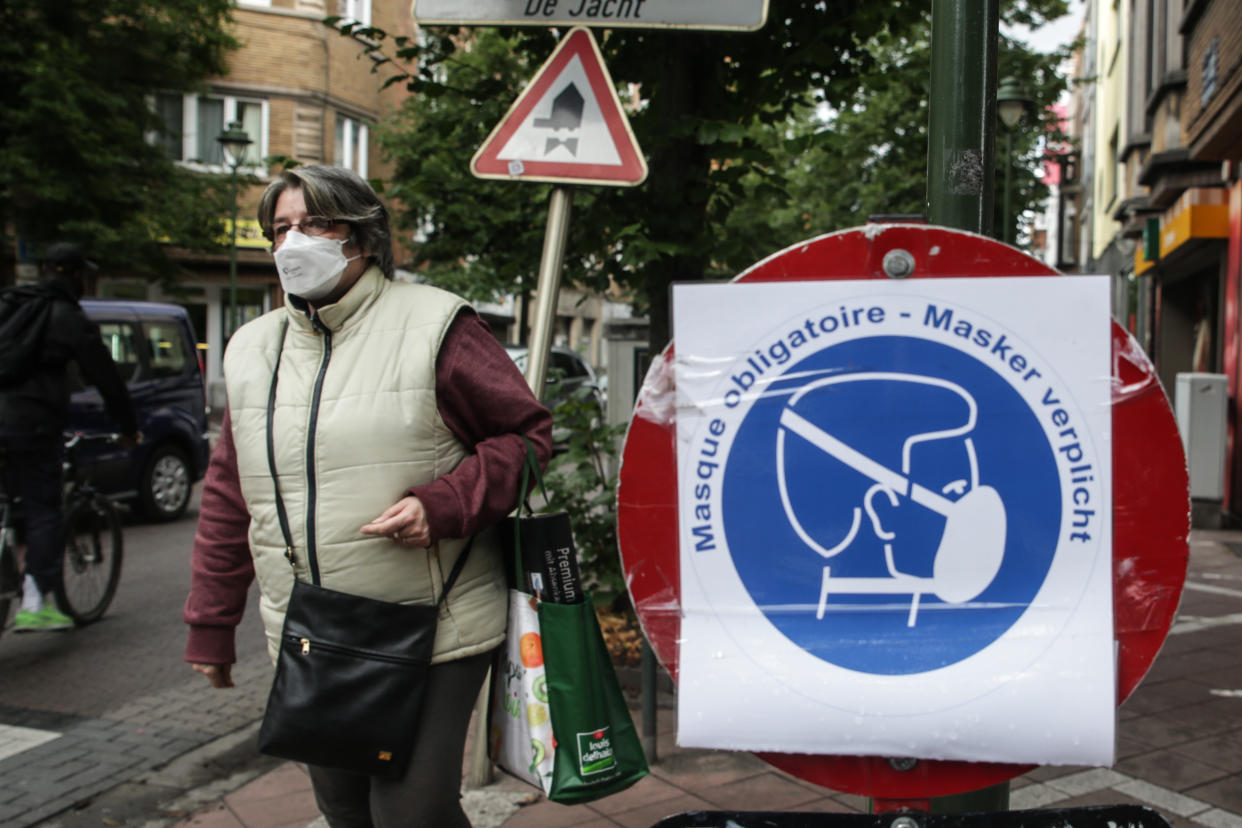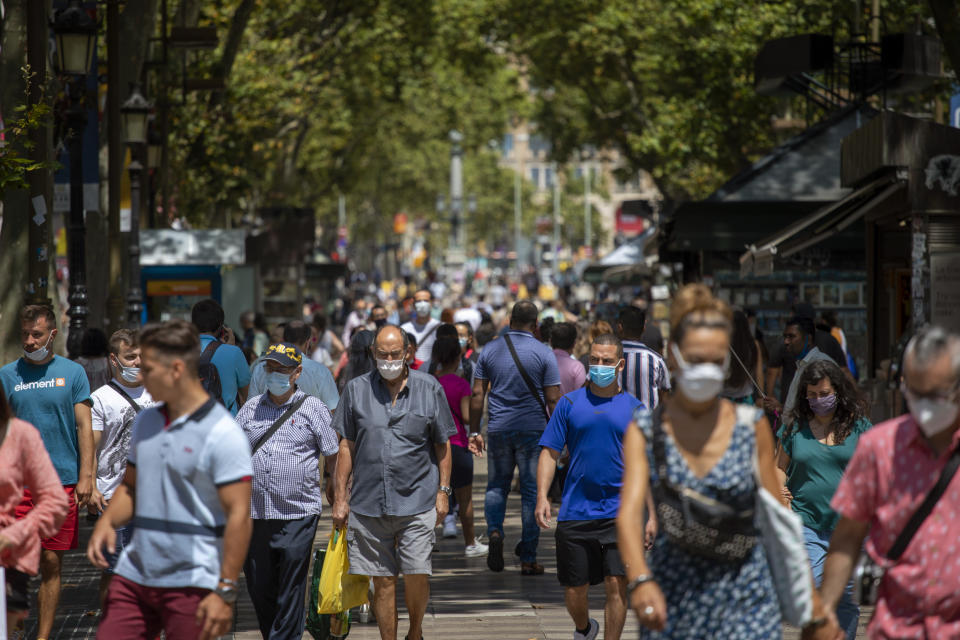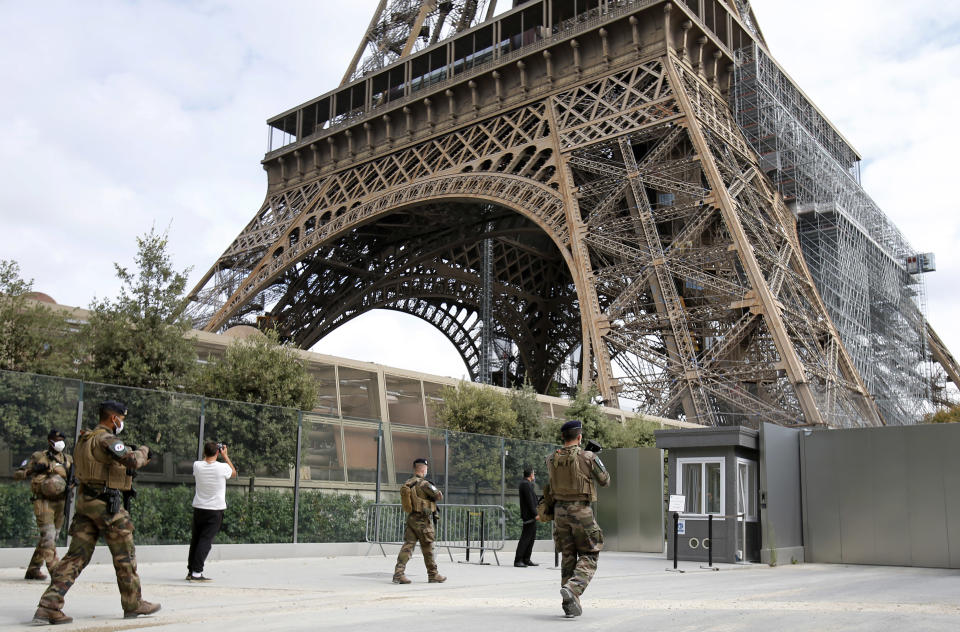Belgium facing coronavirus second wave ‘wake up call’ as Europe tackles new COVID-19 outbreaks

Belgium is facing a second wave of the coronavirus, an expert has said, as Spain saw its highest daily rise in cases for two months.
Across Europe, which was once a major hotspot in the global pandemic, states are focusing on preventing a major resurgence of COVID-19 infections.
Germany is looking into tighter local lockdowns to try and prevent a second wave while the mayor of Paris warned people in her city were becoming less vigilant.
Here is the latest from those four countries’ efforts to hold off a major outbreak.
Belgium
A steady daily increase in coronavirus infections indicates a second wave is starting, a virologist has said.
Marc Van Ranst told Belgian station VRT radio that the numbers were “a wake-up call”.
That is an increase from an average of 86.9 new infections a day the week before, the same title reported. The Brussels Times also reports the R number has risen to one – it needs to be below one for an outbreak to go into decline.
“It has been months since we had so many new infections,” Van Ranst was reported as saying.
“The average will certainly continue to rise in the coming days. I think we should be concerned about this. This is an absolute wake-up call.”
He added: “This is not one hotspot, there are several of them. With these numbers you have to say that you are at the beginning of a second wave.”
He stressed people should use face masks and maintain social distancing.
Belgium has recorded 63,000 cases since the outbreak started there and suffered 9,700 deaths, according to Johns Hopkins University.
Spain
The largest daily rise in COVID-19 cases for two months was recorded on Thursday, as Spain continues to welcome tourists.
A total of 580 new infections were recorded yesterday, up 390 from Wednesday, with Catalonia among the worst hit regions.

Parts of the region have been put back into restrictions and health officials said some action would need to be taken in Barcelona.
There have been more than 170 local outbreaks since Spain lifted its strict lockdown on 12 June, and more than one in 20 people have had the virus, according to a national survey.
The country has reported 258,000 cases so far and 28,000 deaths.
Germany
The new agreement would implement a travel ban for people entering or wanting to leave an affected area and allows for more specific lockdowns as needed.

Anyone who wants to get out of an affected place to go to another German state will have to provide a negative COVID-19 test which is less than two days old.
Toennies shut down the plant in western Germany in June following the outbreak and the company believes the filters will become a nationwide requirement.
Increased focus has been applied to industries where conditions could help trigger an outbreak.
Low temperatures, which can allow viruses to survive in the air for longer, and crowded conditions in places like meatpacking plants have been examined as potential hazards for triggering a new series of infections.
Germany has recorded 201,000 cases and 9,000 deaths.
France
A total of 372 local coronavirus clusters have been identified since May, French health officials have said, and there are worries about new outbreaks coming from private gatherings in the summer.
The nation’s public health agency has warned those kinds of get-togethers could trigger a second wave.
COVID-19 admissions have increased in Parisian hospitals and a third of the 372 clusters are still reportedly active in places like the Ile de France, which includes the capital, and Nouvelle Aquitaine in the South West.
Anne Hidalgo, the mayor of Paris, warned people in her city were being less vigilant about the coronavirus.

She said: “We need to be very, very cautious. Hospitals and doctors have recorded an increase in the number of COVID-19 related cases even if is not yet alarming.”
In the North West of France, the R number for Brittany – a measure of if the outbreak is rising or shrinking if the number is above or below one, respectively – rose from 0.92 to 2.62 between 10 July and 14 July.
Reuters reported that infectious disease expert Eric Caumes told French station BFM TV: “It’s a worrying number because it means the epidemic is taking off again.”
France has reported 211,000 cases and 30,000 deaths.
Coronavirus: what happened today
Click here to sign up to the latest news and information with our daily Catch-up newsletter



